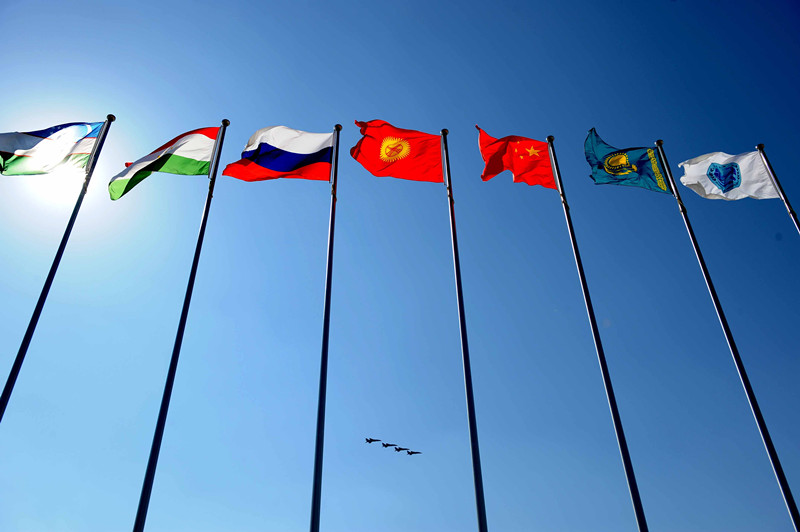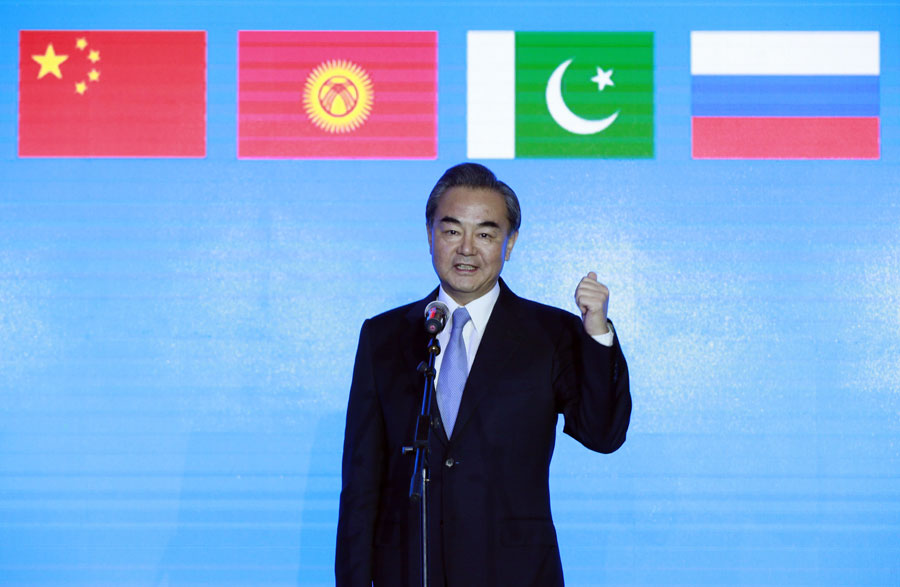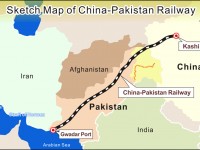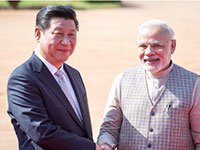
Ma Xiaolin, Professor, School of Arabic Studies, Beijing Foreign Studies University
Jun 27, 2017
As NATO and the SCO expand simultaneously, the situation will become extremely tricky and complex. Therefore, after finishing membership procedures for India and Pakistan, the SCO should refrain from considering further expansion for a while, as it digests the newly added complexities, and should concentrate on enhancing economic interactions.

Yu Sui, Professor, China Center for Contemporary World Studies
Jun 22, 2017
On the evening of June 14, 2017, Foreign Minister Wang Yi attended upon invitation the reception of the Shanghai Cooperation Organization (SCO) Day held by SCO
 How India, China and the U.S. Can Best Help Nepal: Finding Hope amidst Slow-Paced Earthquake Recover
How India, China and the U.S. Can Best Help Nepal: Finding Hope amidst Slow-Paced Earthquake RecoverCurtis S. Chin, Former U.S. Ambassador to Asian Development Bank
May 04, 2017
This past month, Nepal marked two important occasions – one a tragedy, the other a growing friendship with China that may well bring new challenges of its own as this poor, land-locked nation finds its way forward amidst the geopolitics of the region.
Ted Galen Carpenter, Senior Fellow, Randolph Bourne Institute
Apr 29, 2016
U.S. Secretary of Defense Ashton Carter visited Delhi in mid-April, and along with $14 billion in supposed defensive military items from the U.S., as well as a cancelled Beijing trip, unease has spread in China’s defense community. It appears that mutual concerns about China’s ambitions are principal driving force in the China-U.S. bilateral relationship.
Apr 22, 2016
Chinese Premier Li Keqiang on Thursday called on China and India to continue negotiations to seek a peaceful settlement of boundary issues.

Sajjad Ashraf, Former Adjunct Professor, National University of Singapore
Feb 10, 2016
China now provides half of Pakistan’s military hardware and has demonstrated willingness to transfer technology to Pakistan. As geo-political alignments are changing, the mutuality of interests is drawing China and Pakistan closer.
Brahma Chellaney, Professor, Center for Policy Research
Feb 05, 2016
President Xi Jinping’s latest trip to Iran, Saudi Arabia and Egypt point to the broader Chinese ambitions in the Middle East, a region where political turmoil and Russia’s military intervention in Syria are already altering the delicate balance of power. Only sustained pressure can persuade Beijing that its future lies in cooperation and not confrontation.

Sajjad Ashraf, Former Adjunct Professor, National University of Singapore
Jun 25, 2015
The China-Pakistan Economic Corridor plans connect China to the Persian Gulf through the quickest route. This huge investment can be transformational for South and Central Asia if Pakistan can improve upon its lackluster performance in FDI absorption and transparent governance.

Dan Steinbock, Founder, Difference Group
May 12, 2015
China and India are ready for breakthrough diplomacy that has the potential to reorder the face of Asia, while supporting global growth prospects. Of course, there is also concern on both Chinese and Indian sides, due to the lingering border disputes, the shadow of the 1962 war, and the pivot of multiple powers to Asia.
Back to Top

- China-US Focus builds trust and understanding between the U.S. and China through open dialogue among thought leaders.
- Our Offerings
- Topics
- Videos
- Podcasts
- Columnists
- Research Reports
- Focus Digest
- Stay Connected
-
Thanks for signing up!
- Get the latest stories from China-US Focus weekly.